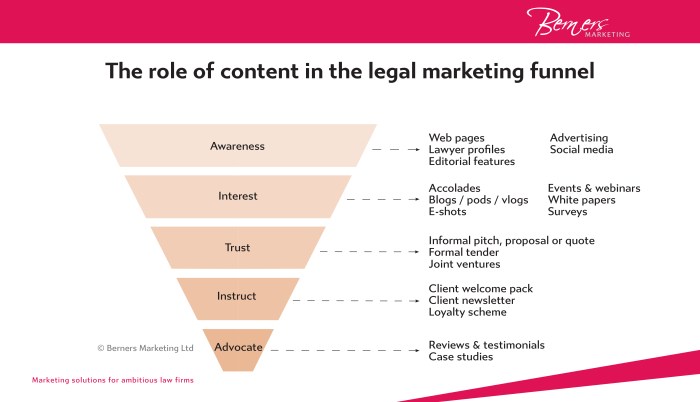Mistakes to Avoid in Law Firm Digital Advertising: A Guide for Success
Embarking on the journey of digital advertising for law firms requires a keen eye for detail and a strategic mindset. In this guide, we delve into the common pitfalls to steer clear of, ensuring a strong online presence and successful campaigns.
As we explore the nuances of digital advertising in the legal sector, we uncover key insights and practical tips to elevate your firm's marketing strategies.
Mistakes to Avoid in Law Firm Digital Advertising
When it comes to digital advertising for law firms, avoiding common mistakes is crucial for a successful online presence. These mistakes can impact a firm's reputation, credibility, and ability to attract clients.
Not Targeting the Right Audience
One key pitfall that law firms should steer clear of is failing to target the right audience with their digital advertising efforts. For example, if a firm specializing in family law is targeting individuals interested in corporate law, they are unlikely to see a high return on investment.
Ignoring Mobile Optimization
Another common mistake is neglecting to optimize digital ads for mobile devices. With the majority of internet users accessing content on their smartphones, failing to ensure that ads are mobile-friendly can result in missed opportunities and a poor user experience.
Overlooking Call-to-Action
Law firms should also avoid the mistake of overlooking the importance of a strong call-to-action in their digital ads. Without a clear directive for potential clients to follow, such as contacting the firm for a consultation, the effectiveness of the ad may be significantly diminished.
Target Audience and Messaging

Understanding the target audience is crucial when creating digital advertising campaigns for law firms. Tailoring the messaging to resonate with the specific needs and preferences of potential clients can significantly impact the success of these campaigns. By identifying the target audience and crafting messages that speak directly to them, law firms can effectively attract and engage the right clients.
Significance of Understanding the Target Audience
When creating digital advertising campaigns for law firms, it is essential to have a clear understanding of the target audience. By knowing who your potential clients are, you can tailor your messaging to address their specific needs, concerns, and preferences.
This targeted approach ensures that your ads resonate with the right people, increasing the chances of converting leads into clients.
Tips on Tailoring Messaging
- Conduct thorough market research to identify the demographics, interests, and behaviors of your target audience.
- Create personalized messages that speak directly to the needs and pain points of your potential clients.
- Use language and tone that resonates with your target audience, avoiding legal jargon that may alienate or confuse them.
- Highlight the unique selling points of your law firm that set you apart from competitors and appeal to your target audience.
Examples of Successful Campaigns
One successful example of a digital advertising campaign that effectively targeted a niche audience is the "Real Legal Advice for Real People" campaign by a family law firm. By focusing on the emotional aspect of family law issues and providing empathetic and practical solutions, the firm was able to connect with potential clients on a personal level and drive conversions.
Compliance and Ethics
In the realm of law firm digital advertising, compliance with legal and ethical guidelines is of utmost importance to maintain credibility and trust with clients and regulatory authorities. Failure to adhere to these standards can result in severe consequences, including fines, reputational damage, and even legal action.Law firms may encounter common compliance issues when running online campaigns, such as:
Misleading Claims
- Ensure that all advertisements are truthful and not misleading to avoid potential legal repercussions.
- Avoid making exaggerated claims or promises that cannot be substantiated.
Confidentiality and Privacy
- Respect client confidentiality and privacy by refraining from disclosing sensitive information in advertisements.
- Obtain necessary consent before using client testimonials or case studies in digital advertising.
Competence and Specialization
- Avoid misrepresenting your firm's expertise or specialization in a particular area of law.
- Ensure that any statements regarding qualifications or accomplishments are accurate and verifiable.
Best Practices for Compliance
- Regularly review and update advertising materials to ensure compliance with current regulations.
- Train staff members involved in digital advertising on legal and ethical requirements.
- Consult with legal counsel or compliance experts to address any uncertainties or concerns.
- Maintain clear records of all advertising campaigns and approvals to demonstrate compliance efforts.
Budgeting and ROI

Setting a realistic budget and measuring return on investment (ROI) are crucial aspects of successful digital advertising for law firms. By understanding the significance of budgeting and ROI, law firms can optimize their advertising strategies for maximum impact.
Importance of Setting a Realistic Budget
Setting a realistic budget ensures that law firms allocate resources efficiently and effectively. It helps in determining the scope of advertising campaigns, selecting the right platforms, and targeting the appropriate audience.
- Law firms should consider their financial capabilities and goals when setting a budget for digital advertising.
- It is essential to analyze the cost of advertising on different channels and prioritize those that offer the best ROI.
- Regularly reviewing and adjusting the budget based on performance metrics is key to optimizing advertising spend.
Strategies for Maximizing Effectiveness within a Budget
Maximizing the effectiveness of digital advertising within a specified budget requires strategic planning and execution. Law firms can implement the following strategies:
- Targeting specific audiences through demographic and behavioral data to improve campaign relevance and efficiency.
- Utilizing retargeting techniques to reach potential clients who have shown interest in the firm's services.
- Optimizing ad creatives and copy to increase engagement and conversion rates.
Tracking and Analyzing ROI
Law firms can track and analyze the ROI of their digital advertising campaigns through various methods:
- Implementing conversion tracking tools to monitor actions taken by users after interacting with ads.
- Calculating the cost per acquisition (CPA) to measure the efficiency of converting leads into clients.
- Utilizing analytics platforms to analyze key performance indicators (KPIs) such as click-through rates, conversion rates, and return on ad spend (ROAS).
Summary

In conclusion, navigating the realm of digital advertising for law firms demands a blend of creativity, compliance, and calculated budgeting. By avoiding common mistakes and embracing best practices, your firm can carve a distinctive path towards online success.
FAQ Section
What are some common pitfalls to avoid in law firm digital advertising?
Avoiding inconsistent branding, neglecting audience targeting, and overlooking compliance guidelines are crucial to a successful digital advertising strategy.
How can law firms tailor messaging for their target audience effectively?
Understanding client personas, conducting market research, and crafting personalized content are key in resonating with potential clients.
Why is measuring ROI important in digital advertising for law firms?
Measuring ROI helps gauge the effectiveness of campaigns, optimize strategies, and allocate budget resources efficiently for future endeavors.




